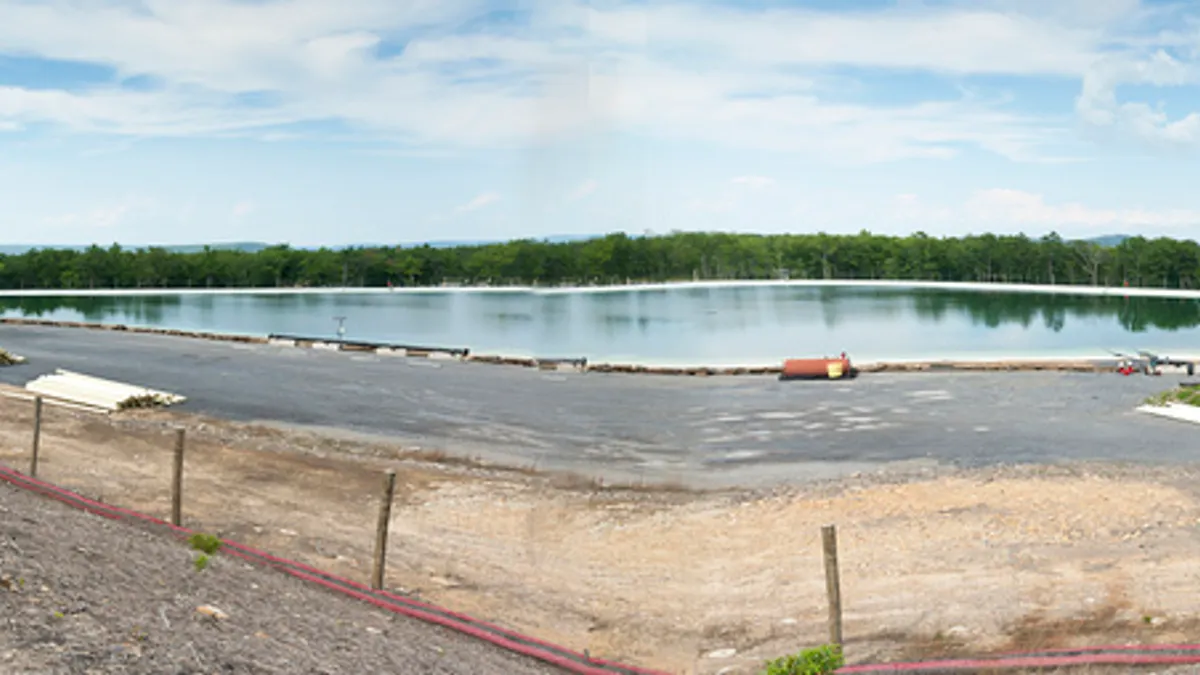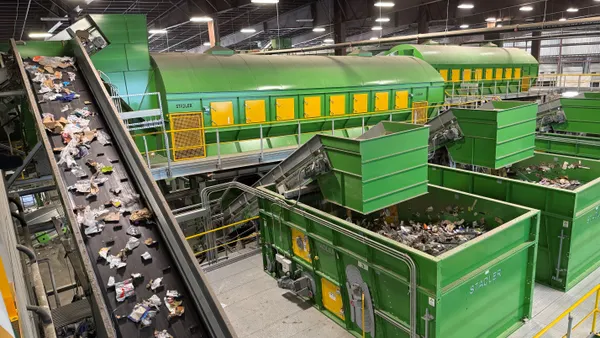Dive Brief:
- Several fracking companies, having depleted water resources during the drilling process, are considering recycling their own wastewater.
- Estimates suggest that around 10% to 20% of water currently used in certain areas, such as Eagle Ford and the Permian Basin, is recycled. According to water analyst Marcus Gay, that number is anticipated to double in the next 10 years.
- Numerous fracking companies say they are no longer using fresh water. Fresh water is a scarcity, and drilling has caused wells in some local towns to go dry.
Dive Insight:
Although the process to recycle wastewater is complicated—chemical treatments, electrodes and gravity all work together—the technology is not new. The process is virtually the same as what is used in Africa to clean drinking water.
Pressure to recycle wastewater from Washington D.C. and Austin, TX is expected to grow in upcoming years, primarily due to the drought-like conditions created by fracking.
Another result of the water shortage is increased costs for fracking companies. In 2007, Clane LaCrosse started a water recycling business after learning from an oil exec exactly how much money fracking companies pour into water supply. Although the business was slow to grow, LaCrosse says that customers are pounding down the door of Bosque Systems now.
"They might be at 20 percent recycling right now, but they were at zero two years ago," LaCrosse said. "Customers are literally coming to us to say, 'Help us out.'"
Another alternative to recycling is the use of treated municipal sewage. Last summer, Oilfield services firm Halliburton released a product that the company says eliminates the need to treat wastewater before use (fracking requires water purity in par with tap water). The development is being touted as a "game-changer" for the recycling industry.













